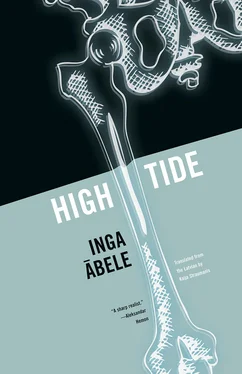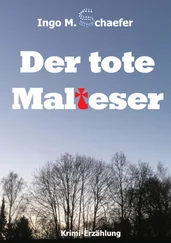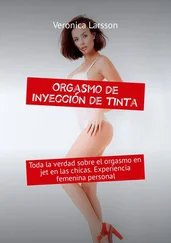King Oedipus, having unwittingly killed his father and married his mother, was unable to afford a single indulgence. The curses came true, but there were never any indulgences. No one had ever been crucified for Oedipus. He had to accept blindness as his fate all on his own. He had to accept himself for what he was and stab out his eyes, and wander the road with his walking stick, mourning his fate and that of his children.
In turn the Ancient Greeks were stingy with lessons. There were only two in the entire book — a lot like those real thoughts a person could think of in a lifetime. Both lessons were briefly laid out in a section about Medea and Jason in Corinth.
“But the happiness, honor, and praise they had hoped for never came to their Greece. Her own words came true: ‘Bloodshed begets bloodshed.’”
Medea had murdered her brother for Jason.
The goddess of love, Aphrodite, who gave so much joy and happiness to people, was also often merciless. “Passion that is more powerful than conscience brings the worst kind of evil to mortals.”
Medea had murdered children for Jason.
Andrejs remembers the moment he read those words, down to the smallest detail. His four cellmates snored away in their dark cell, which was hot from the stove and thick with bodily odors. He was lying on a bottom bunk facing the window; outside, a November storm carried a large, white lamp back and forth, so it looked like someone had hung a full moon up by a string and was waving it over the prison wall. The corners of the cell rustled with cockroaches and a draft, and Andrejs’s blanket glowed from the flashlight he held under it. Having finished reading about Medea, he turned a stony gaze upward to the metal bedsprings above him.
The woman was lying there with her eyes open.
Andrejs’s arm had fallen asleep. But to the point where he couldn’t take it anymore. He woke up — or rather, snapped back from his trance-like state of thinking — and tried to pull his arm out from under the woman’s back, and when he glanced at her he saw that she was lying with her eyes open. When had she woken up?
Afraid that she’d say something and interrupt the story, he instructed:
“Sleep some more!”
The woman obediently closed her eyes.
That night with Medea he’d been healed, because he’d finally seen himself from the sidelines. A tall, immobile, idiotic sack under a thin prison blanket.
That night they let him go. Enlisted him in the reserves. He knew that he would never kill anybody again. Not even Ieva.
Something had ended, the passion suddenly broken. Turns out his fate had been hanging at the end of such a fine strand of hair. Now it had matured, fallen out and slipped away. The shedding of an unnecessary skin.
How strange — when love was flowing through him he didn’t need anything, not even his only shirt. He had done terrible things, but they could all be justified. His, Andrejs’s, love.
Now that it had burnt out, he could start anything, though nothing would give him his fill. And he couldn’t imagine what more he could need that would fill the massive space surrounding him.
Andrejs didn’t even try to understand what happened in his brain when he read the story about Medea. Maybe the two things just fell into place — Medea and the release of his own passions — and both of them had nothing else in common but the horrible events over the course of a single night.
Maybe Aphrodite had never meant to be there in the first place? On that night, had the goddess of love ripped the deeply-lodged, festering arrow from Andrejs’s heart, and then disappeared without a trace? Without the core of the arrow his body crumpled like an empty shell.
He remained half way without Ieva, without reason, without a future. He knew that from there on out things would be calm and he would soon be released. He was a broken clock, a defective mechanism — why fight it? They don’t keep people like that in prison.
In truth, he should have stabbed out his eyes that very night.
“Want some champagne?”
The question spoken into the homey darkness scared the hell out of Andrejs because the woman shot it out as suddenly as a flare gun.
She had been lying there with her eyes open again.
He asked:
“Now?”
“Why not?”
They pulled themselves to their feet, turned on the kitchen light and rubbed their bleary eyes. He watched the movements of her plump elbows. The kitchen was small, and the woman filled the space right away. Andrejs liked this — just watching. He was ready to go sit in one of the corners when the woman said:
“Hand me those glasses!”
“Where?”
“On the shelf by your head.”
He turned toward the wall and came face to face with his own drawing. He stared at it for a long time, as if seeing a ghost, and then asked the woman:
“What’s that?”
“Glasses.”
“I see the glasses. But behind them?”
“That? Oh, that. A card.”
Andrejs very carefully took two fragile champagne flutes in his calloused hands and handed them to the woman. Then he took the card leaning against the wall behind the glasses and sat on a stool next to the small table. He studied the yellowed paper as intensely as a war refugee who’s been pulled from the water and given a passport, and who can’t believe this thing could save his life.
The card was drawn with lead pencil on regular notebook paper and then glued to cardboard. Its edges were decorated with barbed wire, which connected at the top in a knot around a red rose. The lettering For Ludmila — Ruslans was separated by a date, in which the number two looked like a swan with a proudly curving neck. The drawing also had the North Star and the aurora borealis. Small lettering at the bottom read: She dreamt that in the Caucasus steppe …
So she wasn’t an accountant! So that’s where he’d seen that handwriting and date before! How could he forget?
Andrejs asked:
“Ludmila?”
“Yes.”
She sat on the opposite stool at the table and twirled a strand of hair around her finger. Like she was flustered, clueless. When she lifted her eyes to meet his, they were bright with tears.
“That’s the last card my husband sent me.”
She wanted to tell him more, but he silenced her with an impatient gesture. He still couldn’t decide if he should go home right away, or later. If he started to talk now, it would mean he wouldn’t go home until later.
But he started to talk. He hadn’t become a heartless monster yet.
“You don’t need to tell me. I drew this.”
The expressions on the woman’s face changed as quick as the wind, chasing after one another like the shadows of falling leaves — while she sat very stiff and straight, her eyes searching his face to figure out what his words could mean.
“Ruslans and I met at the Central Prison Hospital. He was already admitted when I was brought in. We were together for a week, or less, I don’t remember. In any case no more than a week. I was there when he died.”
The woman let out a weak scream, and the tears finally overflowed. She wiped the wetness across her cheeks with the back of her hand. Andrejs handed her a towel, which she immediately bundled up into a kind of squirrel’s nest and hid her face in it. He waited patiently for her to look up again.
“You could say I was the prison artist. I framed photographs by sewing plastic wires around the edges, drew on materials using safety pins and colored thread, etched wood, sketched. Ruslans found out and showed me your handwriting. Asked me to draw a card and write the words like you did. He really liked your handwriting. I recognized it right away, but thought that you worked at the prison as an accountant.”
Читать дальше












